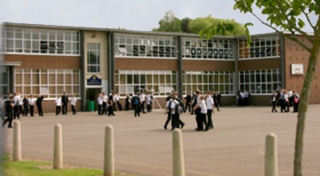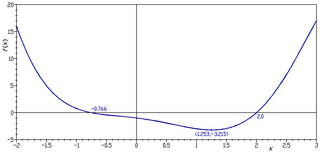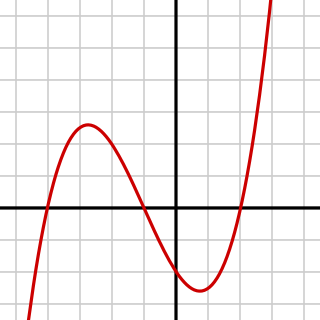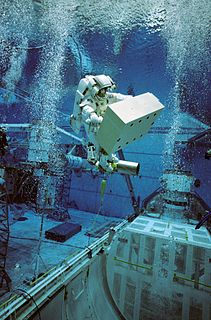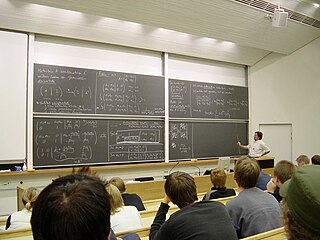
In contemporary education, mathematics education is the practice of teaching and learning mathematics, along with the associated scholarly research.
Learning pathways through statutory assessment: Key Stages 2 and 3, also known as the Daugherty Report is a government review of the educational assessment system for Key Stages 2 and 3 in Wales. The review was commissioned by Jane Davidson of the National Assembly for Wales in June 2003 and undertaken by a group led by Professor Richard Daugherty from the University of Wales, Aberystwyth.

In education, a curriculum is broadly defined as the totality of student experiences that occur in the educational process. The term often refers specifically to a planned sequence of instruction, or to a view of the student's experiences in terms of the educator's or school's instructional goals. In a 2003 study, Reys, Reys, Lapan, Holliday, and Wasman refer to curriculum as a set of learning goals articulated across grades that outline the intended mathematics content and process goals at particular points in time throughout the K–12 school program. Curriculum may incorporate the planned interaction of pupils with instructional content, materials, resources, and processes for evaluating the attainment of educational objectives. Curriculum is split into several categories: the explicit, the implicit, the excluded, and the extracurricular.
National Curriculum assessment usually refers to the statutory assessments carried out in primary schools in England, colloquially known as standard attainment tests (SATs). The assessments are made up of a combination of testing and teacher assessment judgements, and are used in all government-funded primary schools in England to assess the attainment of pupils against the programmes of study of the National Curriculum at the end of Key Stages 1 and 2, when most pupils are aged 7 and 11 respectively. Until 2008, assessments were also required at the end of Key Stage 3 (14-year-olds) in secondary schools.
The Education Quality and Accountability Office (EQAO) is an arm’s-length crown agency of the Government of Ontario in Canada. It was legislated into creation in 1996 in response to recommendations made by the Royal Commission on Learning in February 1995.
Key Stage 3 is the legal term for the three years of schooling in maintained schools in England and Wales normally known as Year 7, Year 8 and Year 9, when pupils are aged between 11 and 14. In Northern Ireland the term also refers to the first three years of secondary education, although these are known as Year 8, Year 9 and Year 10.
Key Stage 4 is the legal term for the two years of school education which incorporate GCSEs, and other examinations, in maintained schools in England normally known as Year 10 and Year 11, when pupils are aged between 14 and 16.
Secondary education in Wales covers the period between the ages of 11 and 16. In this period a child's education is divided into two main stages of the National Curriculum: Key Stages 3 and 4.
Key Stage 2 is the legal term for the four years of schooling in maintained schools in England and Wales normally known as Year 3, Year 4, Year 5 and Year 6, when the pupils are aged between 7 and 11 years.
Key Stage 1 is the legal term for the two years of schooling in maintained schools in England and Wales normally known as Year 1 and Year 2, when pupils are aged between 5 and 7. This Key Stage normally covers pupils during infant school, although in some cases this might form part of a first or primary school. It is also the label used for the third and fourth years of primary education in Northern Ireland. In Hong Kong, it is used to describe Primary One to Primary Three.
Formative assessment, including diagnostic testing, is a range of formal and informal assessment procedures conducted by teachers during the learning process in order to modify teaching and learning activities to improve student attainment. It typically involves qualitative feedback for both student and teacher that focuses on the details of content and performance. It is commonly contrasted with summative assessment, which seeks to monitor educational outcomes, often for purposes of external accountability.
Following a lengthy period of consultation and planning, the Cambridge Primary Review (CPR) was launched in October 2006 as a fully independent enquiry into the condition and future of primary education in England. The Review, directed by Professor Robin Alexander, has been supported since its inception by grants from Esmée Fairbairn Foundation. The scope of the Review and the depth of its evidence have made it the most comprehensive enquiry into English primary education since the Plowden report of 1967. Between October 2007 and February 2009 the Review published 31 interim reports, including 28 surveys of published research, 39 briefings, 14 media releases and several newspaper articles. The Review's 608-page final report Children, their World, their Education: final report and recommendations of the Cambridge Primary Review was published on 16 October 2009, together with an 850-page companion volume, The Cambridge Primary Review Research Surveys. Both books are published by Routledge.
In classrooms where assessment for learning is practised, students are encouraged to be more active in their learning and associated assessment. The ultimate purpose of assessment for learning is to create self-regulated learners who can leave school able and confident to continue learning throughout their lives. Teachers need to know at the outset of a unit of study where their students are in terms of their learning and then continually check on how they are progressing through strengthening the feedback they get from their learners. Students are guided on what they are expected to learn and what quality work looks like. The teacher will work with the student to understand and identify any gaps or misconceptions. As the unit progresses, the teacher and student work together to assess the student's knowledge, what she or he needs to learn to improve and extend this knowledge, and how the student can best get to that point. Assessment for learning occurs at all stages of the learning process.
Shireland Collegiate Academy is a secondary school in the English academy programme, located in Smethwick, West Midlands, England. The school was built during the early 20th century. Originally called Shireland High School, and then later Shireland Language College. The school became Shireland Collegiate Academy in 2007.
Takoradi International School is an international school in Takoradi in the Western Region of Ghana.
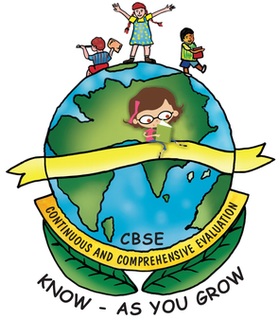
Continuous and Comprehensive Evaluation (CCE) was a process of assessment, mandated by the Right to Education Act, of India in 2009. This approach to assessment was introduced by state governments in India, as well as by the Central Board of Secondary Education in India, for students of sixth to tenth grades and twelfth in some schools. From this the smaller classes student would have a practice to face the exam of board in younger age The Karnataka government introduced CCE for grades 1 through 9 later it was also introduced for 12th grades students. The main aim of CCE was to evaluate every aspect of the child during their presence at the school. This is believed to help reduce the pressure on the child during/before examinations as the student will have to sit for multiple tests throughout the year, of which no test or the syllabus covered will be repeated at the end of the year, whatsoever. The CCE method is claimed to bring enormous changes from the traditional chalk and talk method of teaching, provided it is implemented accurately.

The Concord Consortium was founded in 1994 as an educational research and development organization to create large-scale improvements in K-14 teaching and learning through technology.

Science education in England is generally regulated at all levels for assessments that are England's, from 'primary' to 'tertiary' (university). Below university-level, science education is the responsibility of three bodies: the Department for Education, Ofqual and the QAA, but at university-level, science education is regulated by various professional bodies, and the Bologna Process via the QAA. The QAA also regulates science education for some qualifications that are not university degrees via various qualification boards, but not content for GCSEs, and GCE AS and A levels. Ofqual on the other hand regulates science education for GCSEs and AS/A levels, as well as all other qualifications, except those covered by the QAA, also via qualification boards. The Department for Education prescribes the content for science education for GCSEs and AS/A levels, which is implemented by the qualification boards, who are then regulated by Ofqual. The Department for Education also regulates science education for students aged 16 years and under. The department's policies on science education are implemented by local government authorities on all state schools in England. The content of the nationally organised science curriculum for England is published in the National Curriculum, which covers key stage 1 (KS1), key stage 2 (KS2), key stage 3 (KS3) and key stage 4 (KS4). The four key stages can be grouped a number of ways; how they are grouped significantly affects the way the science curriculum is delivered. In state schools, the four key stages are grouped into KS1–2 and KS3–4; KS1–2 covers primary education while KS3–4 covers secondary education. But in independent or public schools, the key stage grouping is more variable, and rather than using the terms ‘primary’ and 'secondary’, the terms ‘prep’ and ‘senior’ are used instead. Science is a compulsory subject in the National Curriculum of England, Wales and Northern Ireland; state schools have to follow the National Curriculum while independent schools need not follow it. That said, science is compulsory in the Common Entrance Examination for entry into senior schools, so it does feature prominently in the curricula of independent schools. Beyond the National Curriculum and Common Entrance Examination, science is voluntary, but the government of the United Kingdom provides incentives for students to continue studying science subjects. Science is regarded as vital to the economic growth of the United Kingdom (UK). For students aged 16 years and over, there is no compulsory nationally organised science curriculum for all state/publicly funded education providers in England to follow, and individual providers can set their own content, although they often get their science courses accredited or made satisfactory. Universities do not need such approval, but there is a reason for them to seek accreditation regardless. Moreover, UK universities have obligations to the Bologna Process to ensure high standards. Science education in England has undergone significant changes over the centuries; facing challenges over that period, and still facing challenges to this day.

The Kent Mathematics Project (K.M.P.) was an educational system for teaching mathematics to 9-16 year olds. The system comprised task worksheets, booklets, audio compact cassettes and tests. Through the 1970s and 1980s, it was widely adopted in Kent schools, as well as being exported internationally.
